Share
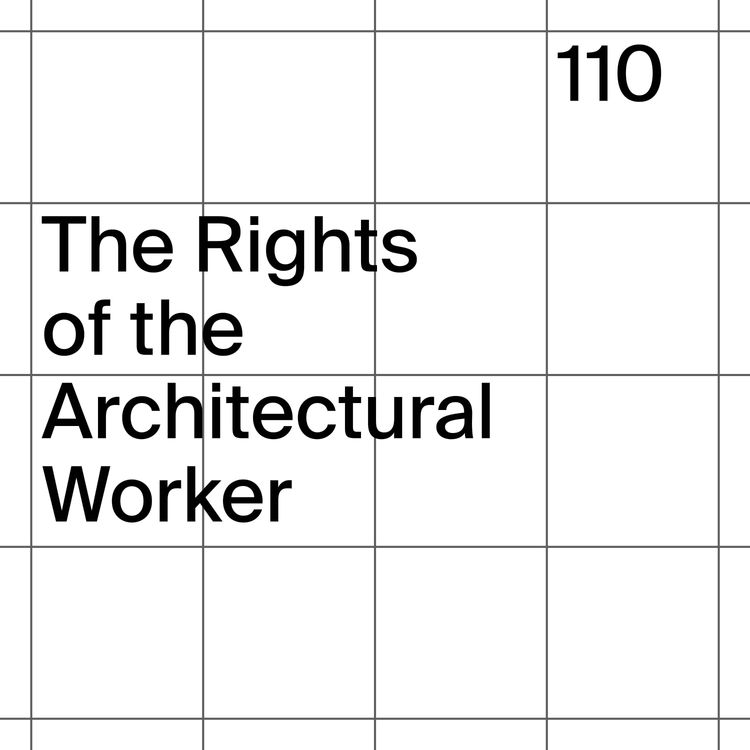
Scaffold
The Rights of the Architectural Worker
•
This episode was recorded live at the Barbican Centre's Frobisher Auditorium on 25 June 2024, with panelists Bob Allies of Allies and Morrison; Charlie Edmonds of the grassroots activist group Future Architects Front; Cristina Gaidos + Maia Rollo of the recently formed union Section of Architectural Workers; and Jane Issler Hall + Owen Lacey of the the architecture collective Assemble.
Scaffold is an Architecture Foundation production, hosted by Matthew Blunderfield.
Download the London Architecture Guide App via the App Store or Google Play
More episodes
View all episodes
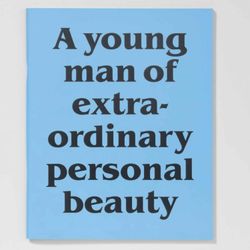
Remembering John Morgan
56:26|The graphic designer John Morgan passed away last September at the age of 52. His final book, Baskerville’s Teardrop Explodes, was published this week, and to mark the occasion we've collected som reflections on Morgan and his work from some of his collaborators. These include, in order of appearance, Tom Weaver former editor of the AA files, Shumi Bose and Kieran Long, who both worked with Morgan on the 2012 Venice architecture Biennale, Ros Barr, who worked with Morgan on a altar design for St Augustine’s Church, Nick Hill, who was designing Morgan’s new studio before he passed away, and Tom Emerson, a director of 6a architects whose collaborations with Morgan extend across many years and projects. You’ll note this list is relatively narrow and hews closely to the world of architecture. The more interviews we collected, the more we realised the scope of this memorial episode risked expanding into an entire series - there are so many people who’ve been changed by Morgan and his work, to say nothing of his students and studio colleagues and publishers, none of whom are featured here. This following voices are just a drop in the bucket in terms of conveying who John was and the influence he had. Scaffold is an Architecture Foundation production, hosted by Matthew Blunderfield. Download the London Architecture Guide App via the App Store or Google PlayBecome an Architecture Foundation Patreon member and be a part of a growing coalition of architects and built environment professionals supporting our vital and independent work.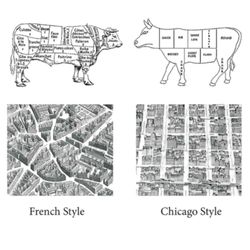
Floris van der Poel's Favourite Things
01:01:51|Floris van der Poel comes on the pod this week to talk about the best work he’s discovered over the past year. Project list (in order of discussion): 1 The rounding of Cape Horn by Charlie Dalin. 2 Atelier Scheidegger Keller + Espazium, Areal Rosengarten Housing, Zurich, 20213 Emmanuel Héré de Corny's Palais du Gouvernement from the years 1751-1753 4 Meat cuts, comparing French and American tastes in urbanism5 Model of an apartment building with 68 units in Tirana by Arquitectura G 6 Volante, housing in Hilversum by Monadnock Architects (2025) 7 Zwhatt housing, Regensdorf 2024. Luetjens Padmanabhan8 770 Park Avenue, designed by Rosario Candela.9 Logements Beaunier by Minuit Architecture10-11 Papieri-Areal, Construction Site B Studio Eschrickenbacher 12-13 Bois-Gentil Housing, 1st Prize — Fruehauf, Henry, Viladoms14 Door handle — LCLA15 Ny Østergade, Copenhagen by Praksis Arkitekter16-17 Office Complex in Hamburg, 2025 by Kawahara Krause
Kenneth Frampton (Part 2)
39:15|In part 2 of Kenneth Frampton’s Scaffold interview, we focus on his own experiences - from his early desire to become a farmer, and the long hesitation that kept him from starting a family, and his regrets around leaving architectural practice for a life of writing. These biographical threads are woven through his encounters with key thinkers – from Herbert Marcuse and Tomas Maldonado to Juhani Pallasmaa and Hannah Arendt – and with buildings like Corringham and Aalto’s Villa Mairea and the transformation in perspective they represent.The discussion moves between the question of anti-capitalist architecture, the inundation of images in contemporary life, and the importance of what Frampton calls the microcosmos – architecture as the creation of “a small world” where society can begin to recognise itself. Along the way, Frampton reflects on what it might mean not to separate the reality of work from the pleasure of life.Scaffold is an Architecture Foundation production, hosted by Matthew Blunderfield. Download the London Architecture Guide App via the App Store or Google PlayBecome an Architecture Foundation Patreon member and be a part of a growing coalition of architects and built environment professionals supporting our vital and independent work.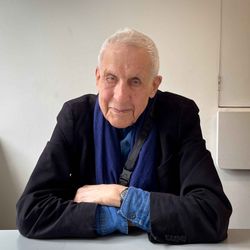
Kenneth Frampton
56:10|Architectural historian Kenneth Frampton remembers the exact moment of his political awakening. Arriving in the United States in 1965, flying over the blazing island of Manhattan and suddenly grasping the visibility of capitalist power there—“a ferocious panorama” of light, cars and consumption that stood in stark contrast to what he calls the “concealed” capitalism of mid-century Britain. From that moment, his architectural writing became inseparable from politics: shaped by Hannah Arendt’s idea of the space of appearance, by phenomenology’s insistence on embodied experience, and by a Marxist attention to exploitation, power and the global neoliberal order.In this first episode of a two-part interview, Kenneth Frampton, arguably the most celebrated and influential architectural thinker of the past half century, looks back over nearly six decades of his writing and teaching.In the first half of the conversation he addresses the idea critical regionalism as “an architecture of resistance” to commodification, connects phenomenology to political agency rather than aesthetic escapism, and defends his own “operative” criticism—writing that openly aims to influence how architects practice. He is unsparing about the state of architectural education, where social-justice rhetoric often displaces serious engagement with construction and craft, and where capitalism itself remains strangely unnamed. Along the way he reflects on being, as he puts it, “a Marxist who believes in phenomenology,” on the tectonic poetics of building, and, closing out the episode, he reckons with becoming a father at 52 and a grandfather in his mid-90s—thinking about legacy, continuity and what it means for architects, in Álvaro Siza’s phrase, not to invent anything, but to transform reality.Scaffold is an Architecture Foundation production, created and hosted by Matthew Blunderfield. Become an Architecture Foundation Patreon member and be a part of a growing coalition of architects and built environment professionals supporting our vital and independent work.
playbody
01:09:42|Today’s episode considers a part of the built environment that’s often overlooked in architectural discourse, yet has become one of the most vibrant sites of experimentation in recent years: the nightclub.Since the post-COVID resurgence of nightlife, we’ve seen club spaces music festivals become laboratories again — places where architects, artists and designers, artists test how bodies move, gather, and connect. After years of enforced separation, there’s been a renewed appetite for intimacy, tactility, and collective presence. Nightclubs have stepped into that space, foregrounding not just sound and spectacle, but how architecture can invite touch, trust, and new forms of social closeness.There are few people exploring that frontier more boldly than today’s guests: Thea Arde and Joel Jjio, the duo behind playbody. Playbody is far more than a club night — it’s an ongoing design research project that treats the dancefloor as a site of architectural inquiry. Their events incorporate sculptural objects, spatial interventions, and choreographic prompts that encourage people to rediscover their own physicality in relation to others.In a time when digital life keeps pulling us apart, their work asks a simple but radical question: how can design rebuild social intimacy? Today we’ll talk about how playbody grew from a nightlife concept into a design studio, how they prototype through parties, and why they see the club as a critical testing ground for the future of spatial practice.Scaffold is an Architecture Foundation production. Support our work by becoming a member on Patreon.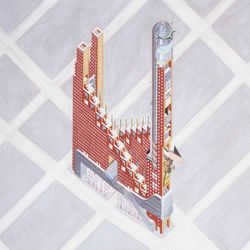
OMA at 50
51:16|This special guest episode marks the launch of the podcast OMA at 50.Conceived and produced by architect Richard Hall, the series explores the Office for Metropolitan Architecture’s enduring influence on architectural culture, featuring conversations with an incredible roster of architects, academics, and historians.Marking OMA’s 50th anniversary, the podcast features some of the most authoritative voices on OMA — including Laura Schrijver, Pier Paolo Tamburelli, Sébastien Marot, Giovanna Borasi, and many others.New episodes are released every Thursday. Subscribe by searching OMA at 50 on Apple Podcasts, or by following this link.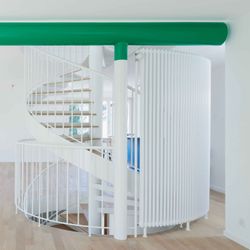
Truwant + Rodet +
01:24:50|Truwant+Rodet+ is a Basel-based architecture firm founded in 2015 by Charlotte Truwant and Dries Rodet, which operates across the fields of architecture, landscape urbanism, exhibition making, installations, furniture design, research, and teaching.In 2017, they received the Swiss Art Award for their project A Pavilion. Since 2018, they have been developing the project, Fountain of Youth with Fabian Marti for the Campus Santé in Lausanne. In 2020, Truwant+Rodet+ won the renovation for the Centre Culturel Suisse in Paris with the Parisian firm ASBR. In 2022, they won the competition for the renovation of the Stadium of Bulle.This conversation was recorded remotely on 12 September in Basel and London. Special thanks this week to Bárbara Maçães Costa.The essay "Time as Material" referred to in the conversation can be accessed here.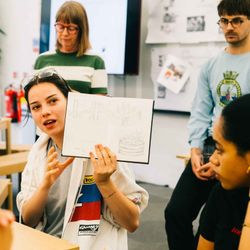
Why be an architect today?
15:21|Scaffold is back this week, with an episode that asks a simple question: why be an architect today?The Architecture Foundation is based inside the office of AHMM in Clerkenwell, which, back in July, hosted a summer school for teenagers just beginning to explore architecture.We decided to speak with some of them, to try and understand what draws young people to this profession today, what they think architecture is for, and how they imagine their futures in it.In these short conversations you get a strong impression of the perennial motivations that push people toward careers in shaping the built environment, despite the seemingly diminishing returns of practicing architecture today.Speaking with these students about their convictions give us a lot of hope: that the culture of architecture today, its perceived importance in society, and the esteem it’s held in, might still be elevated, and remain worthy of the ambition and altruism that is clearly in no short supply in this incoming generation.Special thanks this week to all the summer school students, and to Claire Pollock / AHMM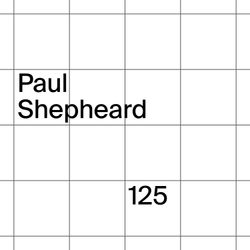
Paul Shepheard
01:05:02|Paul Shepheard is a British architect and writer known for his philosophical and multidisciplinary approach to architecture. Shepheard was a student at the Architectural Association in the 1960’s, and has worked both in practice, for the likes of James Gowan, and in academia, teaching at institutions like the AA, the University of Texas at Austin, and the Kingston School of Art.As a writer, he is best known for books that explore architecture in relation to broader cultural, technological, and existential themes. His notable works include What is Architecture? (1994), The Cultivated Wilderness (1997), Artificial Love (2003), and How to Like Everything (2013). His most recent book, and the focus of our interview, is called Autobiography, which was published in 2024 by Canalside press.